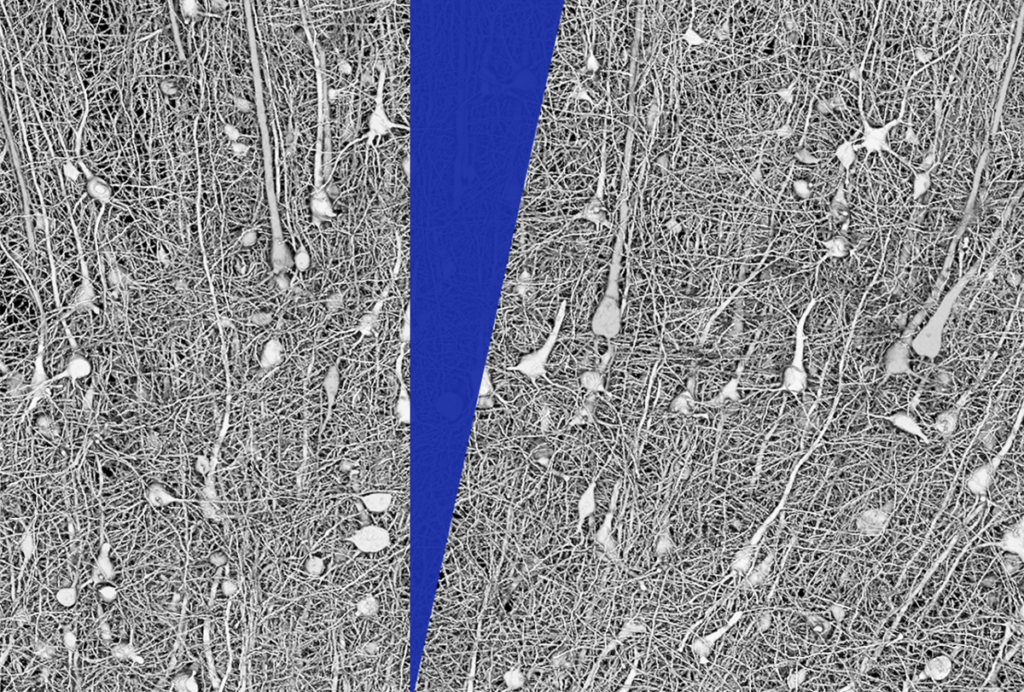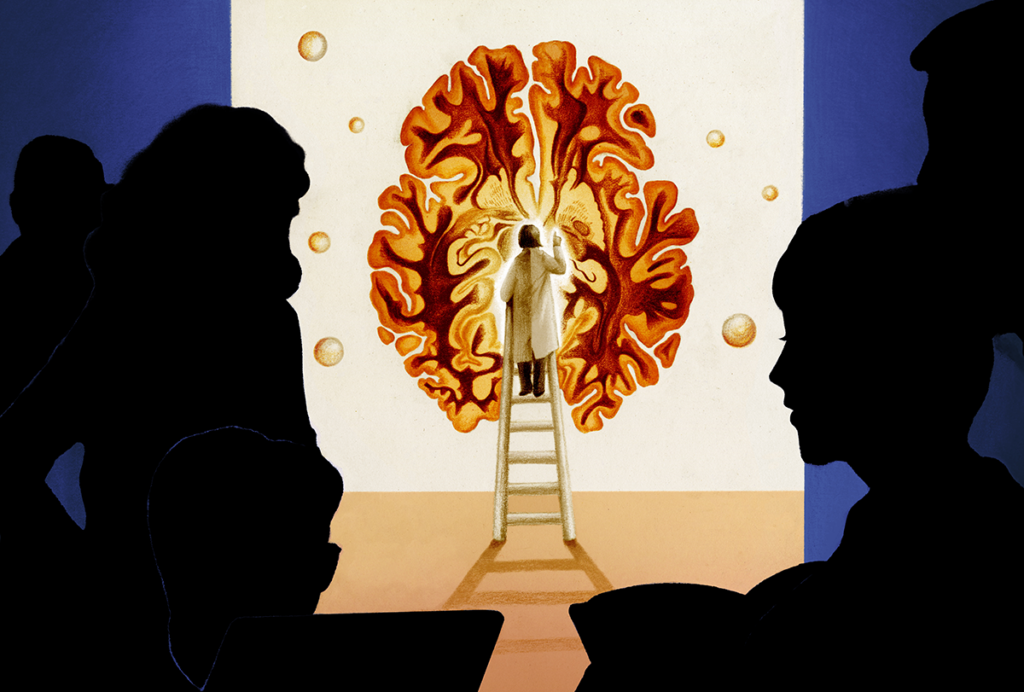Neuroscience research backed by the U.S. National Institutes of Health (NIH) could undergo major upheaval and budget cuts, if things go according to a leaked proposal from the Department of Health and Human Services (HHS).
The 64-page document, dated 10 April and first reported by The Washington Post, proposes an NIH budget of just under $27 billion—about a 40 percent cut from the 2025 budget of $47 billion.
“A 40 percent cut would mean dramatic and immediate changes in the ability of scientists in the United States to conduct their work,” says Joshua Gordon, former director of the National Institute of Mental Health (NIMH). Such a cut would result in massive layoffs and severe downstream consequences due to the loss of economic activity typically engendered by NIH research, he says. “We would be doing this at a time when China is massively investing in their biomedical science research portfolio. So, within a matter of a few years, we would lose our competitive edge in biomedical science.”
HHS representatives did not respond to The Transmitter’s request for comment. The HHS budget plan is only a proposal; President Trump is set to submit his own budget request in the coming months, and then Congress can negotiate and pass a funding bill.
In addition to the budget cut, the document also outlines a significant reorganization of the NIH’s institutes and centers—streamlining them from 27 to only 8.
That plan includes the creation of a new institute, the Institute on Neuroscience and Brain Research, which would house the existing National Institute of Dental and Craniofacial Research, National Institute of Neurological Disorders and Stroke, and the National Eye Institute. Other neuroscience-related institutes would be moved elsewhere, with the NIMH, the National Institute on Alcohol Abuse and Alcoholism, and the National Institute on Drug Abuse slated to fall under the umbrella of a new National Institute of Behavioral Health.
It is unclear if these changes would be allowed, given that many institutes, including the NIMH, were established by acts of Congress, Gordon says. Getting rid of an institute would also likely require Congressional authorization, he says. However, “it’s possible they could get away with it without that, if they keep the individual institutes’ names.”
One major concern about such a reorganization is how the budget and priorities would be set for each of the new institutes, Gordon says. Lumping three existing institutes under a new National Institute of Behavioral Health, for example, “might mean that the people who are overseeing that might overlook priorities within one area or de-prioritize one of the institute’s purviews in ways that go counter to the interests of Congress or counter to the interests of the American public or counter to the to the needs of science—without the local expertise within the institute.”
Still, Gordon notes that the document is only a draft—nothing final. “We do have allies in Congress,” he says. “People need to reach out to their representatives and their senators and urge them to prevent this massive destruction of American science.”





